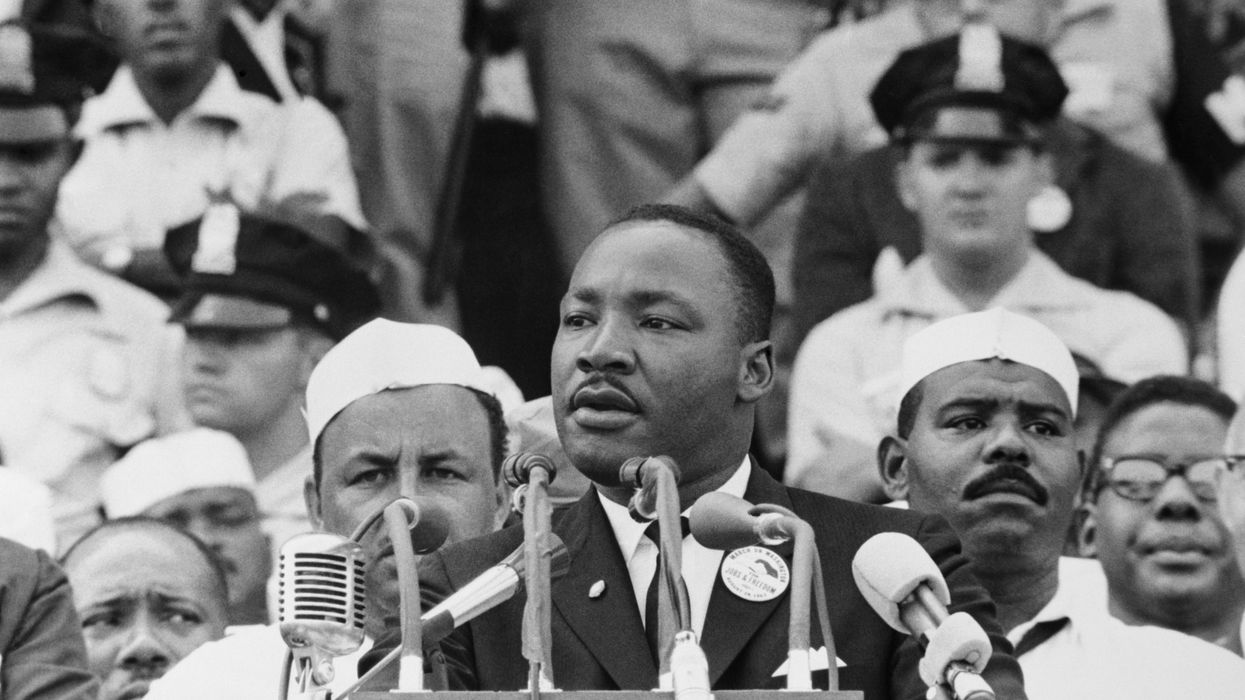Molineaux is co-publisher of The Fulcrum and president/CEO of the Bridge Alliance Education Fund.
Over 60 years ago, the civil rights movement was only a dream. Rev. Martin Luther King Jr. continues to remind us our dream of America is unfulfilled and our work is unfinished. Today is for celebration and remembrance. It’s also a day of action, as we continue advocating for civil rights.
What civil rights are not yet assured?
- Full access to voting for all citizens.
- Equitable wages and worker protections.
- Equal access to resources like health care, financial services.
- Mutual respect and safety in community.
He spoke with a passion about the hypocrisy of our society and opened our eyes and our minds to see it for what it was: a failed dream of our founders. It wasn’t his fault that we had not lived up to the founding ideals. King accepted his turn in the story of America. And he continues to inspire us to take action and live into what we can become.
King was a man of great courage but he never gave in. He was jailed 29 times for acts of civil disobedience, most often on trumped-up charges, but he was not deterred. It took 13 years to build a movement, which resulted in the historic Civil Rights and Voting Rights Acts.
He was a remarkable man indeed. In 1964, at the age of 35, he became the youngest person ever to win the Nobel Prize for peace.
It’s our turn now. What will we commit to do? What risks will we take?
As we lose the giants of the civil rights movement, like John Lewis, CT Vivian, Daisy Bates and others, we must accept the mantle of responsibility. It is my hope we do so with the same deep commitment to nonviolence as we live into the ideals of our (amended) founding documents.
Today, we have similar and dissimilar obstacles to the early civil rights activists. Similar and dissimilar biases. Similar and dissimilar motivations.
Our similarities are the embedded nature of white supremacy ideology, of defaulting to the human hierarchy that advantages one set of people over another and is often motivated by a desire for power. Another similarity is the discomfort we feel as Americans. It’s our turn to be uncomfortable with the status quo.
King referenced this discomfort specifically when he said, “the white moderate is more devoted to “order” than to justice; who prefers a negative peace which is the absence of tension to a positive peace which is the presence of justice.” If we are indifferent, if we remain on the sidelines, justice will never be achieved. Inaction supports the status quo. Yet America remains an unfinished story, and we are always evolving.
Today is dissimilar to the early civil rights era, as our challenges are exacerbated by rapidly changing technology. Social media allows disinformation to spread faster than wildfire. Friends and family have or can become radicalized, seemingly overnight. The challenges of today are fueled by conflict entrepreneurs, who have discarded truth as an inconvenience; their goals are to make money and gain power or influence. They serve only themselves at the expense of our nation.
On this day of celebration, remembrance and action inspired by MLK, let us take our turn. I extend this prayer and invitation to you and our nation.
We are connected, you and I. We welcome you to the beloved community. Will you grant yourself safe passage?
It’s not our fault that we live in these times. But it is our turn to pick up the mantle and live into a better and just America.




















Trump & Hegseth gave Mark Kelly a huge 2028 gift